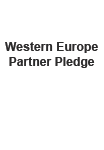In today's dynamic and competitive business environment, the ability to adapt becomes a determining factor for the long-term success of companies. This is where business agility comes into play.

Rapid technological evolution, changing consumer preferences and intense global competition require companies to be able to adjust with agility to the constantly changing demands of the marketplace.
Those organizations that are able to adapt quickly not only stay ahead of the curve, but also gain a significant competitive advantage over their competitors.
In this article, we will explore how companies can integrate Business Agility principles to effectively adapt to market changes. From rapid product iteration to agile implementation of marketing campaigns, Business Agility presents itself as a key strategy to excel in an ever-changing business environment.
What is Business Agility?
Business Agility is the ability of an organization to adapt and respond effectively to market changes, leveraging flexibility, innovation and collaboration. It involves the adoption of agile practices in all areas of the business, from product development to business operations and marketing.
Agile companies are constantly looking for ways to improve and adjust to the changing needs of customers and the market in general.
Rapid Product Iteration
One of the most effective ways companies can apply Business Agility principles is through rapid product iteration. Rather than following a linear and predictable product development approach, agile companies adopt an iterative approach that involves creating minimum viable versions (MVPs) and gathering early feedback from customers.
This feedback is used to inform ongoing product development, allowing the company to quickly adapt to changing customer needs and preferences.
Example: Spotify
A prime example of rapid product iteration is Spotify, the popular music streaming service. Spotify constantly rolls out new features and enhancements to its platform based on user feedback and market trends.
For example, when demand for podcasts began to grow, Spotify quickly responded by adding a wide variety of podcast content to its platform.
This ability to adapt quickly to changing consumer needs has been critical to its continued success in the streaming music industry.
Agile Implementation of Marketing Campaigns
Another important aspect of Business Agility is the agile implementation of marketing campaigns through marketing intelligence techniques.
In a dynamic business environment, companies must be able to respond quickly to emerging opportunities and adjust their marketing strategies accordingly.
This requires an agile mindset and the ability to act quickly to capitalize on market trends and competitive opportunities.
Example: Oreo
A notable example of agile marketing campaign implementation is Oreo's response during the 2013 Super Bowl blackout.
When the power went out in the stadium during the game, Oreo quickly seized the opportunity to launch a witty tweet that read "You can still dunk in the dark!"
This impromptu campaign went viral in a matter of minutes, demonstrating the brand's ability to quickly adapt to unexpected events and successfully capitalize on them.
The Benefits of Business Agility
The application of Business Agility principles offers a number of significant benefits for companies:
1. Increased Flexibility and Adaptability:
Agile companies have the unique ability to adapt quickly to market changes, allowing them to adjust their strategies effectively and remain competitive in an ever-changing business environment.
This agility gives them the flexibility to anticipate and respond to market demands in a timely manner, giving them a significant advantage over their competitors.
By staying in tune with market trends and being able to adjust quickly, agile companies can strategically position themselves to excel in a dynamic and highly competitive business environment.
2. Continuous Innovation:
By taking an iterative approach to product development and marketing, companies are not only able to foster continuous innovation, but are also constantly on the lookout for new opportunities and creative solutions to meet changing customer needs.
This approach enables them to stay at the forefront of their industry, anticipating emerging trends and adapting quickly to deliver innovative products and services that stand out in a competitive marketplace.
A continuous improvement mindset and the ability to experiment and learn in an agile manner are key to staying relevant and leading in an ever-changing business environment.
3. Improving Customer Satisfaction:
The ability to adapt quickly to changing customer needs and preferences is critical to improving customer satisfaction and fostering long-term brand loyalty.
When a company is agile and can adjust quickly to market demands, it demonstrates its commitment to offering products and services that truly meet the needs of its customers.
This not only strengthens the relationship with consumers, but also creates a solid base of loyal customers who trust the brand and recommend it to others.
Customer loyalty strategies are an invaluable asset for any company, as it not only drives sales and profitability, but also contributes to the company's reputation and long-term success in a competitive and ever-changing marketplace.
4. Reduced Time to Market:
This translates into an exceptional ability to get products and marketing campaigns to market faster and more effectively.
By adopting an agile approach, companies can significantly reduce the time it takes to take a product from the development phase to final launch, enabling them to quickly capitalize on emerging opportunities and respond in a timely manner to market demands.
By shortening time to market, companies can be more agile in their ability to meet customer needs in real time.
This gives them a significant competitive advantage by being able to adapt quickly to market trends and launch products and marketing campaigns more efficiently.
In short, agile implementation of products and marketing campaigns not only accelerates the process of bringing new products to market, but also enables companies to capitalize on market opportunities more quickly and efficiently, giving them a key competitive advantage in an ever-changing and evolving business environment.
Conclusion
In an increasingly competitive and changing business world, the ability to adapt quickly to market changes is critical to long-term success.
By applying Business Agility principles, such as rapid product iteration and agile implementation of marketing campaigns, companies can remain agile, innovative and competitive in an ever-changing business environment.
Those companies that embrace business agility will be better positioned to thrive in the future and overcome challenges along the way.



